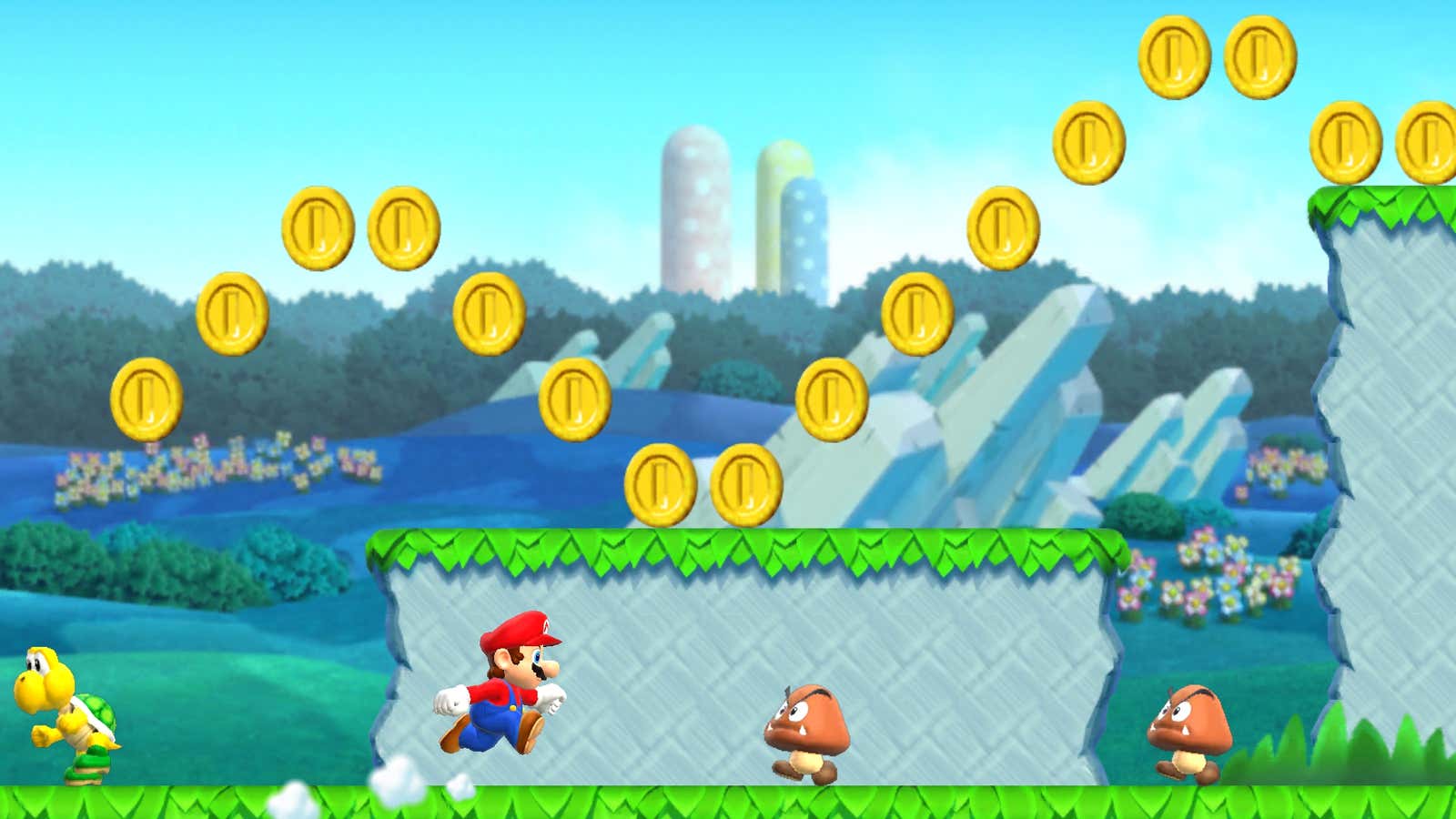Things were supposed to be different with Mario.
This summer, the popularity of Pokémon Go took the world—and investors—by surprise. It was the hit of the summer, getting generations of fans out into the streets to capture and fight their favorite Pokémon. But Nintendo, the video-game company that has published the majority of Pokémon games over the years, saw little profit from the mobile game. That’s because it didn’t produce the game, but merely licensed the brand through its jointly-owned Pokémon licensing company to the games company Niantic. When investors first started to comprehend how popular the game was, money poured into Nintendo’s stock. But they soon realized that Nintendo was not making much off the game, and its share price started to fall again.
There was some hope that Nintendo, which had traditionally been against licensing its most popular franchises for mobile systems beyond its own Game Boy and DS consoles, might be changing its mind. In 2015, it said that it planned a few mobile games for the future, but before Pokémon Go, the only mobile product it had released was Miitomo, a bizarre, Kafkaesque social network involving avatars, dress-up, and not much else.
Then came Mario.
At Apple’s iPhone launch event in September, Nintendo’s creative director, Shigeru Miyamoto, appeared onstage to announce the company’s first original mobile game, Super Mario Run. Nintendo’s stock price again popped at the prospect of a new iPhone game centered around the company’s most famous character.
But when the game was finally released Dec. 15, it seems that fans were less than pleased. The game is currently the number 1 most-downloaded app on Apple’s App Store, with estimates suggesting it has been downloaded about 10 million times. But, on the US App Store, the game has more one-star reviews than any other rating, with many customers voicing frustration with the game’s cost structure. The game is free to download, but once you get past the third level, you have to pay $10 to unlock the rest of the game, which is still relatively short. This is not made clear when the game is downloaded.
As a result, investors seem to be jumping ship. Even ahead of the game’s release, Nintendo’s share price had been falling. And since the game’s launch on Thursday, Nintendo’s market capitalization has fallen by another ¥364 billion, or roughly $3 billion at today’s exchange rate.
Beyond the poor reviews, there may be concerns over the fact that the game doesn’t offer in-app purchases, which means no incremental revenue streams above the cost of the game.
It’s worth noting that because of the buoyancy of Pokémon Go, Nintendo’s market cap is still up over $8.5 billion on the year, and with a new videogame system on the horizon in 2017, it’s possible that this speed bump won’t slow Nintendo down too much.
